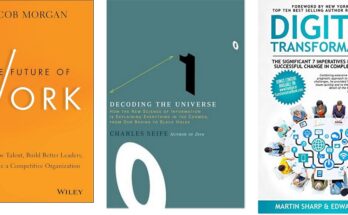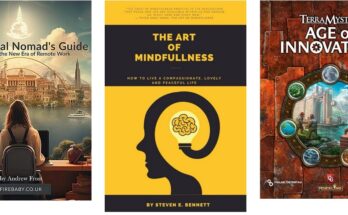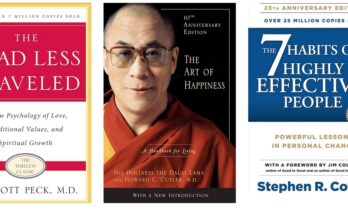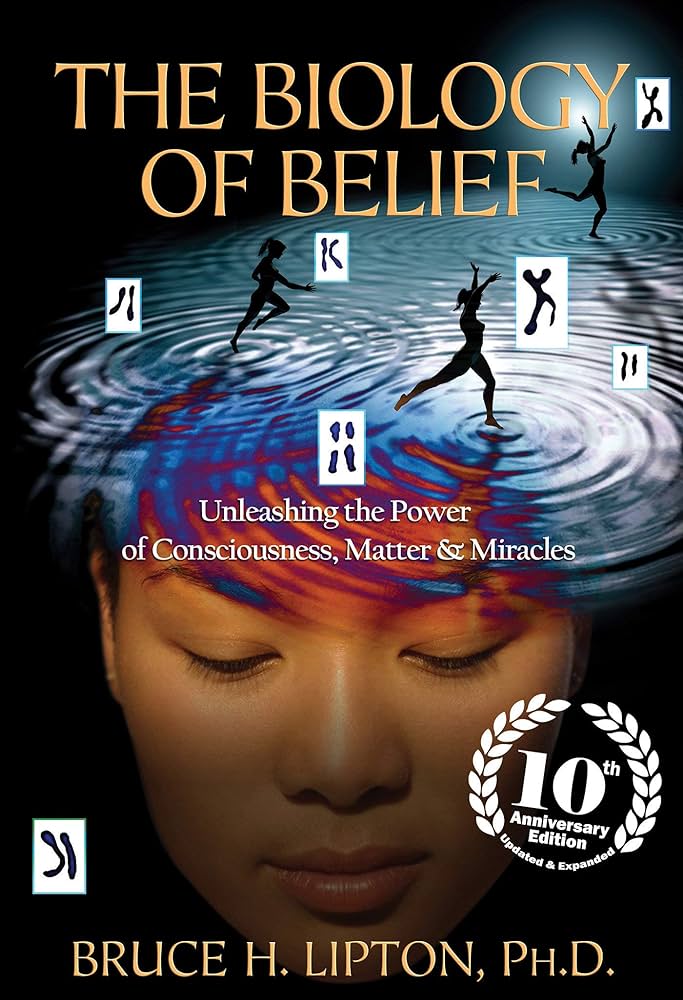
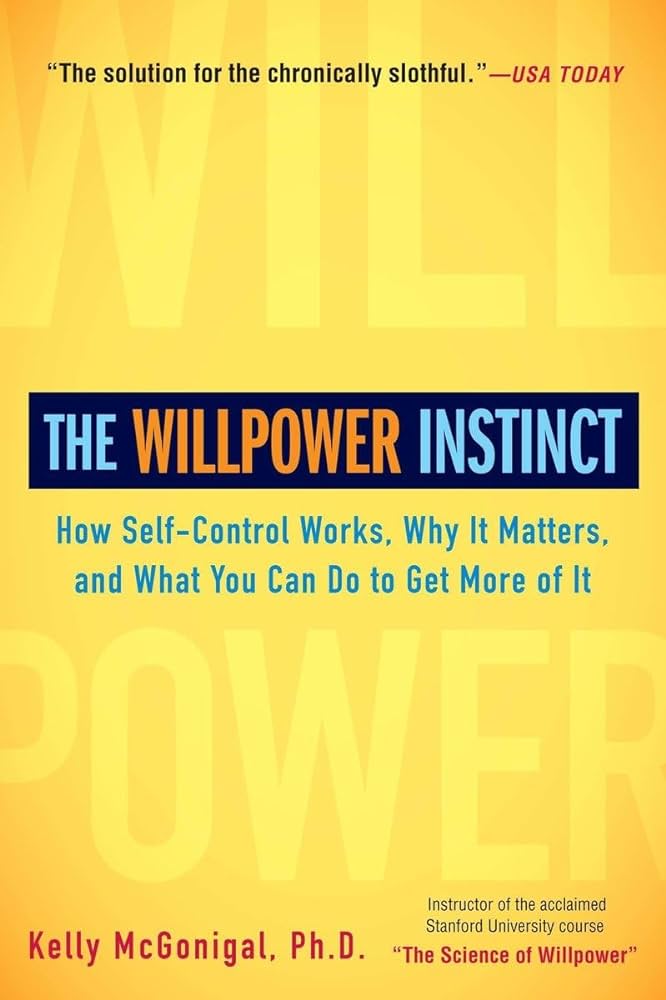
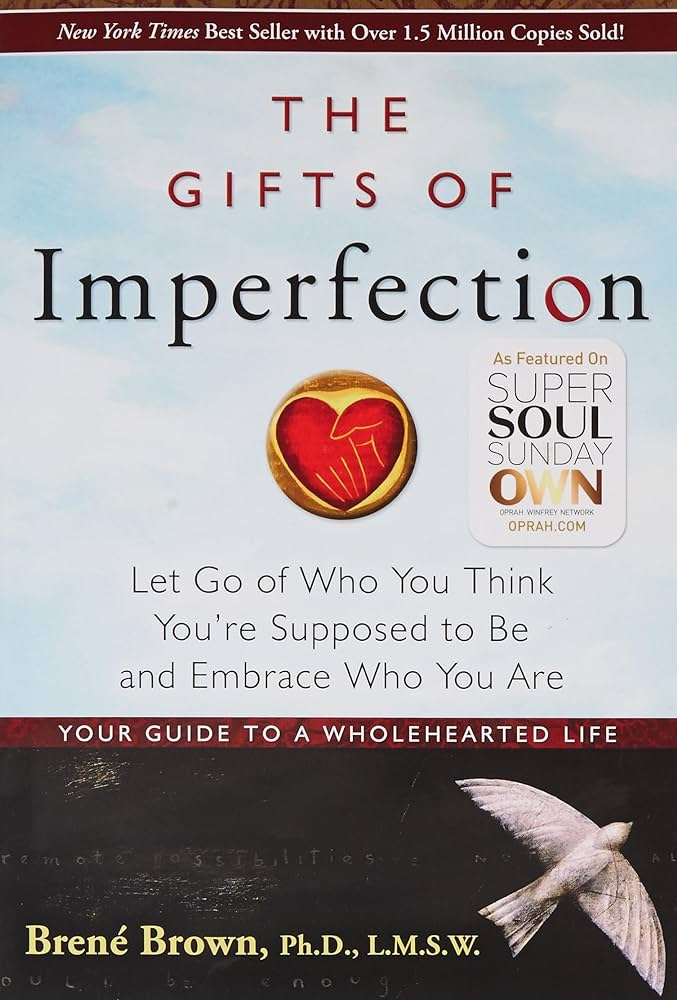
The Biology of Belief" by Bruce H. Lipton vs The Willpower Instinct" by Kelly McGonigal vs The Gifts of Imperfection" by Brené Brown
The Biology of Belief by Bruce H. Lipton
Overview: Bruce H. Lipton’s “The Biology of Belief” delves into the intersection of biology and belief systems. Lipton, a cell biologist, argues that our beliefs can significantly influence our biological processes. The book integrates cellular biology with quantum physics and spiritual concepts to propose that our thoughts can directly impact our physical well-being.
Key Concepts:
- Epigenetics: Lipton introduces the concept of epigenetics, explaining how environmental factors and our perceptions can influence gene expression without altering the DNA sequence.
- Cell Membranes as Biological Computers: The book describes cell membranes as information processors that respond to environmental signals. These signals, Lipton argues, can be influenced by our thoughts and emotions.
- Subconscious Programming: Lipton highlights how subconscious beliefs, often formed in early childhood, can control our behaviors and physiological responses. He emphasizes the importance of reprogramming these subconscious beliefs to achieve better health and well-being.
- Mind-Body Connection: The book stresses the powerful connection between the mind and body. Lipton suggests that positive thinking, meditation, and other mental practices can lead to physical health benefits.
Impact and Reception: “The Biology of Belief” has been praised for its innovative approach to understanding the mind-body connection. It has sparked discussions in both scientific and spiritual communities, although some critics argue that Lipton’s ideas are too speculative and lack empirical evidence.
The Willpower Instinct by Kelly McGonigal
Overview: Kelly McGonigal’s “The Willpower Instinct” is a practical guide to understanding and harnessing willpower. McGonigal, a health psychologist, draws on research from psychology, neuroscience, and behavioral economics to explain how willpower works and how we can strengthen it.
Key Concepts:
- Understanding Willpower: The book defines willpower as a finite resource that can be depleted and replenished. McGonigal explains the biological and psychological mechanisms behind willpower, including the roles of the prefrontal cortex and stress.
- Strategies for Strengthening Willpower: McGonigal offers a variety of strategies to improve willpower, such as mindfulness meditation, exercise, adequate sleep, and managing stress. She also emphasizes the importance of setting realistic goals and understanding personal triggers.
- Self-Control and Behavior Change: The book explores the relationship between self-control and long-term success. McGonigal provides insights into common willpower challenges, such as procrastination, addiction, and temptation, and offers practical tips for overcoming these obstacles.
- The Science of Self-Compassion: McGonigal highlights the role of self-compassion in maintaining willpower. She argues that being kind to oneself, especially after setbacks, can enhance resilience and motivation.
Impact and Reception: “The Willpower Instinct” has been widely appreciated for its accessible writing style and practical advice. It has been used in various self-help and professional development contexts. Critics, however, sometimes point out that some of the advice may be difficult to implement consistently in daily life.
The Gifts of Imperfection by Brené Brown
Overview: Brené Brown’s “The Gifts of Imperfection” is a guide to embracing vulnerability and living authentically. Brown, a research professor and expert on vulnerability, shame, and empathy, encourages readers to let go of societal expectations and cultivate self-worth.
Key Concepts:
- Wholehearted Living: Brown introduces the concept of “wholehearted living,” which involves embracing one’s imperfections and living a life grounded in courage, compassion, and connection.
- Cultivating Authenticity: The book emphasizes the importance of authenticity and the courage to be imperfect. Brown discusses how societal pressures and fear of judgment often lead to self-sabotage and disconnection.
- The Power of Vulnerability: Brown argues that vulnerability is not a weakness but a strength. She explains how embracing vulnerability can lead to deeper connections with others and greater personal fulfillment.
- Letting Go of Perfectionism: The book provides strategies for letting go of perfectionism, including practicing self-compassion, setting boundaries, and embracing imperfections as part of the human experience.
Impact and Reception: “The Gifts of Imperfection” has resonated with a wide audience, particularly those struggling with self-worth and perfectionism. Brown’s research-based approach and relatable writing style have made the book a staple in personal development. Critics sometimes note that the concepts, while powerful, can be challenging to apply consistently without ongoing effort and support.
Comparison Table
| Aspect | The Biology of Belief | The Willpower Instinct | The Gifts of Imperfection |
|---|---|---|---|
| Author | Bruce H. Lipton | Kelly McGonigal | Brené Brown |
| Focus | Mind-body connection, epigenetics, and the impact of beliefs on biology | Understanding and strengthening willpower | Embracing vulnerability and living authentically |
| Key Concepts | – Epigenetics<br>- Cell membranes as information processors<br>- Subconscious programming<br>- Mind-body connection | – Understanding willpower<br>- Strategies for strengthening willpower<br>- Self-control and behavior change<br>- The science of self-compassion | – Wholehearted living<br>- Cultivating authenticity<br>- The power of vulnerability<br>- Letting go of perfectionism |
| Target Audience | Individuals interested in the intersection of science and spirituality | Individuals seeking practical advice on improving self-control and willpower | Individuals struggling with self-worth, perfectionism, and societal pressures |
| Writing Style | Integrates scientific concepts with spiritual ideas | Accessible, practical, and research-based | Relatable, research-based, and encouraging |
| Impact and Reception | Sparked discussions in scientific and spiritual communities; some critics argue ideas lack empirical evidence | Widely appreciated for practical advice; some advice may be difficult to implement consistently | Resonated with those struggling with self-worth; concepts can be challenging to apply consistently |
By comparing these three books, we can see that each offers unique insights and practical advice in different areas of personal development. “The Biology of Belief” focuses on the mind-body connection and the power of beliefs, “The Willpower Instinct” provides strategies for understanding and strengthening willpower, and “The Gifts of Imperfection” encourages embracing vulnerability and authenticity. Each book has had a significant impact on its readers, offering valuable tools for personal growth and transformation.

